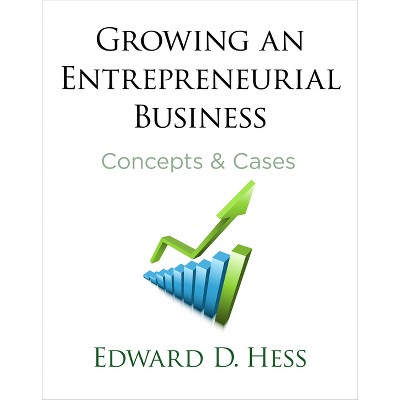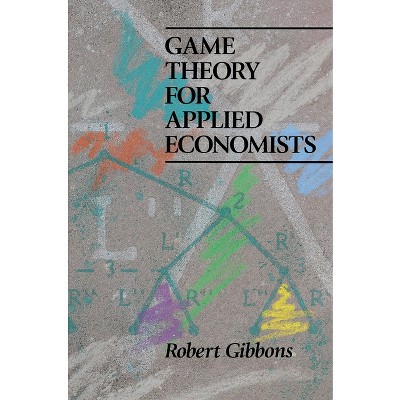Foundations of Stochastic Inventory Theory - by Evan Porteus (Hardcover)

About this item
Highlights
- In 1958, Stanford University Press published Studies in the Mathematical Theory of Inventory and Production (edited by Kenneth J. Arrow, Samuel Karlin, and Herbert Scarf), which became the pioneering road map for the next forty years of research in this area.
- About the Author: Evan L. Porteus is the Sanwa Bank Professor of Management Science at the Stanford Graduate School of Business.
- 320 Pages
- Business + Money Management, Economics
Description
About the Book
This book has a dual purpose--serving as an advanced textbook designed to prepare doctoral students to do research on the mathematical foundations of inventory theory, and as a reference work for those already engaged in such research. All chapters conclude with exercises that either solidify or extend the concepts introduced.Book Synopsis
In 1958, Stanford University Press published Studies in the Mathematical Theory of Inventory and Production (edited by Kenneth J. Arrow, Samuel Karlin, and Herbert Scarf), which became the pioneering road map for the next forty years of research in this area. One of the outgrowths of this research was development of the field of supply-chain management, which deals with the ways organizations can achieve competitive advantage by coordinating the activities involved in creating products--including designing, procuring, transforming, moving, storing, selling, providing after-sales service, and recycling. Following in this tradition, Foundations of Stochastic Inventory Theory has a dual purpose, serving as an advanced textbook designed to prepare doctoral students to do research on the mathematical foundations of inventory theory and as a reference work for those already engaged in such research.
The author begins by presenting two basic inventory models: the economic order quantity model, which deals with "cycle stocks," and the newsvendor model, which deals with "safety stocks." He then describes foundational concepts, methods, and tools that prepare the reader to analyze inventory problems in which uncertainty plays a key role. Dynamic optimization is an important part of this preparation, which emphasizes insights gained from studying the role of uncertainty, rather than focusing on the derivation of numerical solutions and algorithms (with the exception of two chapters on computational issues in infinite-horizon models).
All fourteen chapters in the book, and four of the five appendixes, conclude with exercises that either solidify or extend the concepts introduced. Some of these exercises have served as Ph.D. qualifying examination questions in the Operations, Information, and Technology area of the Stanford Graduate School of Business.
From the Back Cover
In 1958, Stanford University Press published Studies in the Mathematical Theory of Inventory and Production (edited by Kenneth J. Arrow, Samuel Karlin, and Herbert Scarf), which became the pioneering road map for the next forty years of research in this area. One of the outgrowths of this research was development of the field of supply-chain management, which deals with the ways organizations can achieve competitive advantage by coordinating the activities involved in creating products--including designing, procuring, transforming, moving, storing, selling, providing after-sales service, and recycling. Following in this tradition, Foundations of Stochastic Inventory Theory has a dual purpose, serving as an advanced textbook designed to prepare doctoral students to do research on the mathematical foundations of inventory theory and as a reference work for those already engaged in such research.The author begins by presenting two basic inventory models: the economic order quantity model, which deals with "cycle stocks," and the newsvendor model, which deals with "safety stocks." He then describes foundational concepts, methods, and tools that prepare the reader to analyze inventory problems in which uncertainty plays a key role. Dynamic optimization is an important part of this preparation, which emphasizes insights gained from studying the role of uncertainty, rather than focusing on the derivation of numerical solutions and algorithms (with the exception of two chapters on computational issues in infinite-horizon models).
All fourteen chapters in the book, and four of the five appendixes, conclude with exercises that either solidify or extend the concepts introduced. Some of these exercises have served as Ph.D. qualifying examination questions in the Operations, Information, and Technology area of the Stanford Graduate School of Business.
Review Quotes
"Evan Porteus has organized the important foundations that are essential not only to appreciate this area and apply known results effectively, but that are crucial to fuel further progress that inevitably will be required to meet new practical challenges."--Sridhar Tayur, Graduate School of Industrial Administration "Carnegie Mellon University"
"Every organization is striving to match supply with demand. Foundations of Stochastic Inventory Theory introduces the fundamental theories for tackling this challenging management task. Emphasizing simple, intuitive, and practical inventory policies rather than complex theories for general settings, Evan Porteus has written both a great textbook for graduate students in management, as well as a great reference book for anyone interested in inventory theory. Simply put, this is one of the best books on inventory theory available."--Lode Li "Yale School of Management"
"This book provides a comprehensive foundation for inventory theory. Amazingly, Evan Porteus is able to introduce and explain very complex concepts in simple and interesting ways. In providing the intuitions behind many of the theories and results, he brings difficult concepts to life. This is a must-read for anyone who wants to learn, apply, or conduct research in stochastic inventory theories."--Hau Lee "Stanford University"
"This book provides a powerful and insightful approach to the analysis and control of stochastic dynamic systems. The introduction to dynamic optimization is focused and efficient with emphasis on how the theory can be applied to operational control settings such as inventory management and many others. At last, with this book every student and researcher interested in optimal operational control can benefit!"--Jan A. Van Mieghem, Kellogg School of Management "Northwestern University"
About the Author
Evan L. Porteus is the Sanwa Bank Professor of Management Science at the Stanford Graduate School of Business.










